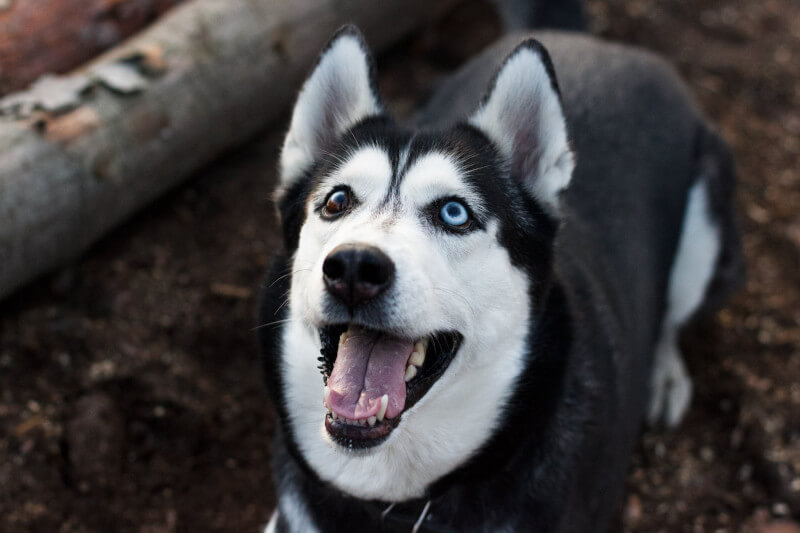The following is an overview of the most common breed-specific diseases found in purebred dogs. This list is by no means comprehensive, but it should provide you with a basic understanding of what to keep an eye out for when shopping for a purebred companion animal.
Hip Dysplasia is a Purebred Problem in Alsatians (German Shepherds)

The majority of larger dogs are affected by hip dysplasia, which occurs when the ball of the hip does not fit correctly into the socket of the hip.
Don’t forget to ask the breeder about the family dogs and find out if they have hip dysplasia so you can avoid getting a puppy with the condition. If they don’t, there’s a good chance that the pups won’t have it either. Epilepsy
Epilepsy is common in Beagles

This affable breed is much more susceptible to epileptic seizures than any other breed, and they will typically experience their first episode anywhere between the ages of six months and three years. Even though there is no known cure for this condition, it is typically treatable with medication.
What is Known as ” Cherry Eye” in Boston Terriers
This breed is prone to a variety of eye problems, such as dry eye, cataracts, and entropion (turned-in eyelids), as well as cherry eye, which occurs when a tear-producing gland that is vibrantly red and round “pops out” from beneath the dog’s third eyelid. The big distended eyes of this breed make them particularly vulnerable to these eye conditions. Surgery is an option for patients who have cherry eyes.
Cancer in a Boxer

Some forms of cancer, such as lymphoma and mast cell tumors, are more likely to affect boxers than the general population. In either scenario, cancer will manifest itself on your dog’s body as an abnormal growth in the form of a nodule or bump. Because early detection is key to treating either of these cancers, you should make it a habit to check your boxer regularly for the presence of lumps.
Bulldogs Are Prone to Ailments Affecting the Respiratory System

The squashed face of your bulldog, which you fell in love with, is the reason for their breathing issues, snoring, and tiring easily. If he becomes overheated or overtired, the combination of his small nostrils, his elongated soft palate, and his narrow trachea could result in a life-threatening emergency. Maintain a comfortable temperature for your bulldog during the warm summer months, and limit the amount of vigorous activity he gets.
The Trachea of a Chihuahua That Is About to Collapse

When your dog gets excited and makes a sound like a toy car honking, this could be a sign that she suffers from a collapsed trachea, a condition that is common in toy breeds. The normally strong cartilage that keeps the trachea open becomes brittle and causes the trachea to collapse. Some dogs can live their entire lives with this condition and not experience any negative effects; however, others will need to take medication, and in more severe cases, they may require surgery.
The Purebred Dog With a History of Ear Infections is the Cocker Spaniel
Because of his adorable floppy ears that are covered in fur, your cocker spaniel is prone to developing ear infections. It is best to prevent an issue rather than try to treat it, so make sure to clean your dog’s ears once every two weeks and occasionally flip her ears back to allow them to “breathe.”
Dachshunds Often Suffer From Back Problems
It is common knowledge that the long backs of Daschies make them more susceptible to spinal strain. Keep your dachshund at a healthy body weight and try to limit activities that exert strain on her back, such as walking up stairs and jumping down from furniture.
Heart Condition in Doberman Pinscher
Dilated cardiomyopathy, also known as DCM, is a condition that has no known treatment and therefore requires owners of Dobermans to regularly monitor and treat their pets.
DCM occurs when the chambers of the heart are elongated and fail to pump blood effectively. This condition frequently gives no symptoms until the dog collapses, so you must take your dog in for a yearly visit to the veterinarian.
Skin Allergies In Golden Retrievers

Is your dog constantly licking, nibbling, and scratching, and does he or she have red, seeping sores? It’s an indication that you have skin allergies. You can help your dog’s itchy skin by giving him baths with oat shampoo, supplementing his diet with omega-3 fatty acids, and making sure he gets flea treatment regularly.
Great Danes Are Susceptible to Bloating

Large dog breeds, such as Great Danes, have a greater potential for developing gastric dilation or bloat. This poses a serious risk to life. It occurs when the stomach becomes distended with gas and then twists, which causes the food and gas to become trapped inside the stomach. In the immediate aftermath of eating, you should immediately contact your veterinarian if you observe that your dog is exorbitantly pacing, breathing heavily, and salivating. It is treatable through surgical procedures, but if it is not addressed promptly, it can be fatal.
Syndrome of the Little White Shaker in Maltese
This ailment, despite its humorous name, is exactly what it sounds like: trembling in small dogs. It is triggered by an inflammatory response in the cerebellum, which induces trembling that can be so severe that the dog can barely stand up. The great news is that it can be treated with corticosteroids, the dog will not experience any pain from it, and it will typically disappear after a few weeks have passed.
The Prevalent Eye Problems in Pugs

Because of their protruding eyes, pugs are predisposed to a variety of eye conditions, the most severe of which involves the eye being dislodged from its socket. This is something that can occur if a pug is involved in an incident or gets into a tussle with another dog. If this occurs, you should immediately take your dog to the veterinarian and wrap the eye with a damp cloth.
Rottweiler Joint Difficulties
Large breed dogs are more likely to suffer from a variety of joint conditions, including hip dysplasia, elbow dysplasia, arthritis, and osteochondrosis dissecans (OCD). Providing your Rottweiler with the appropriate amount of a well-balanced diet may assist in maintaining healthy joints. However, it may be necessary to remove the abnormal cartilage through surgical means.
Collie Eye in a Shetland Sheepdog
Collie eye, a condition that is common in collie breeds and can cause damage to the retina and the optic disc, is one of the leading causes of preventable blindness in dogs. There is currently no cure for the collie eye, so before you introduce a Sheltie pooch into your home, you should make sure to check and see if the dog has been checked for it.
Autoimmune Disorders in Siberian Huskies

Siberian Huskies have a genetic predisposition toward several autoimmune diseases, some of which manifest on the skin as sores and hair loss, most frequently on the face; others manifest across the skin and the eyes and can result in eye conditions such as glaucoma and cataracts. Corticosteroids, which impede immune function, are the treatment of choice for these conditions.
A Portosystemic Shunt is Often Diagnosed in a Yorkshire Terrier
A portosystemic shunt, also known as PSS, is a genetic abnormality that affects the blood vessels and is prevalent in toy and small breed dogs like the Yorkie. Toxins aren’t eliminated when it has PSS because the vein goes around the liver, which normally does that job. This can lead to poor growth, throwing up, confusion, and seizures in some dogs. The majority of cases of PSS are treatable through surgical intervention, after which the dog will be able to lead an ordinary, healthy life.


